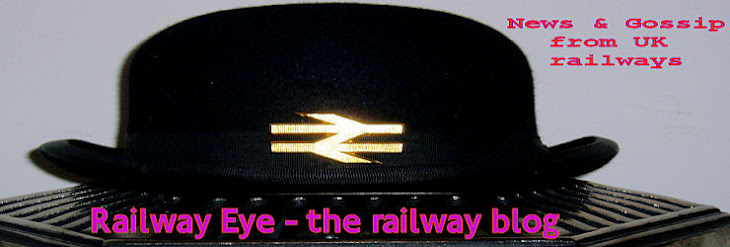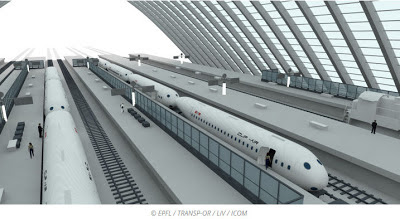Good news for fans of cuckoo clocks!
The Engineering Innovation Team are looking for new ideas but this one from Switzerland shows what the UK is up against.
This from Global Rail News...
Clip-Air’ has been touted by its developers, Swiss university EPFL,
as the future of intermodal travel. Passengers could board a train in
London and arrive in New York without leaving their seat.
Train capsules would travel directly to the airport from city centre railway stations where they would then latch on to the underside of a specially-equipped plane.
The aircraft would be capable of supporting three of these capsules, each with around 150 passengers on board.
Good news indeed.
It looks as if there is already a prototype of this exciting Swiss innovation in operation!
And here it is coming in to land!
Hmmm... a bit more work to do perhaps?
UPDATE: This from Trailer Second...
Is this from the same team that brought us the bi-mode IEP?








